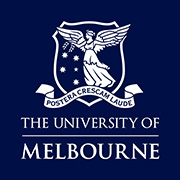Course Level
Master Degree (By Coursework)
CRICOS
088478A
Master of Biostatistics
The Master of Biostatistics at the University of Melbourne provides an advanced education in biostatistics. It encompasses the design of advanced experiments and the collection, summary, interpretation and communication of data analysis to health professionals. This degree covers all the necessary statistical theory, and the emphasis throughout is on the application and adaptation of computational analysis using current health datasets. The compulsory research project ensures that you are able to apply your skills to real-world problems. The wide-ranging elective subjects allow great flexibility in terms of biostatistics career pathways.
Campus | Duration | Fees | ATAR |
|---|---|---|---|
Parkville | Full-time - 18 months Part-time - 3 years | N/A | N/A |
Structure
Option 1: 5 core subjects, 5 electives and a two unit (25 points) biostatistics research project; Option 2: 5 core subjects, 5 electives and the Capstone Selective POPH90123 Longitudinal and Correlated Data and a 12.50 point Research Project
Subjects
- Epidemiology 1
- Introduction to Statistical Computing
- Probability & Inference in Biostatistics
- Advanced Regression
- Foundations of Regression
- Infectious Disease Epidemiology
- Health Economics 1
- Health Indicators and Health Surveys
- Statistical Genomic
- Communication for Research Scientists
- Digital Transformation of Health
- Longitudinal and Correlated Data
- Database Systems & Information Modelling
- Programming and Software Development
- Bayesian Statistical Methods
- Causal Inference
- Clinical Biostatistics
- Computational Statistics & Data Science
- Design of Randomised Controlled Trials
- Infectious Diseases Modelling
- Machine Learning for Biostatistics
- Practice of Statistics & Data Science
- Epidemiology 2
Entry requirements
- A bachelors degree (or equivalent) in a directly related discipline, from an approved university, with a Weighted Average Mark (WAM) of at least 70% (or equivalent), AND
- Successful completion of at least one tertiary-level mathematics subject, which includes elements of multivariable calculus and linear algebra, with a score of at least 65%.
